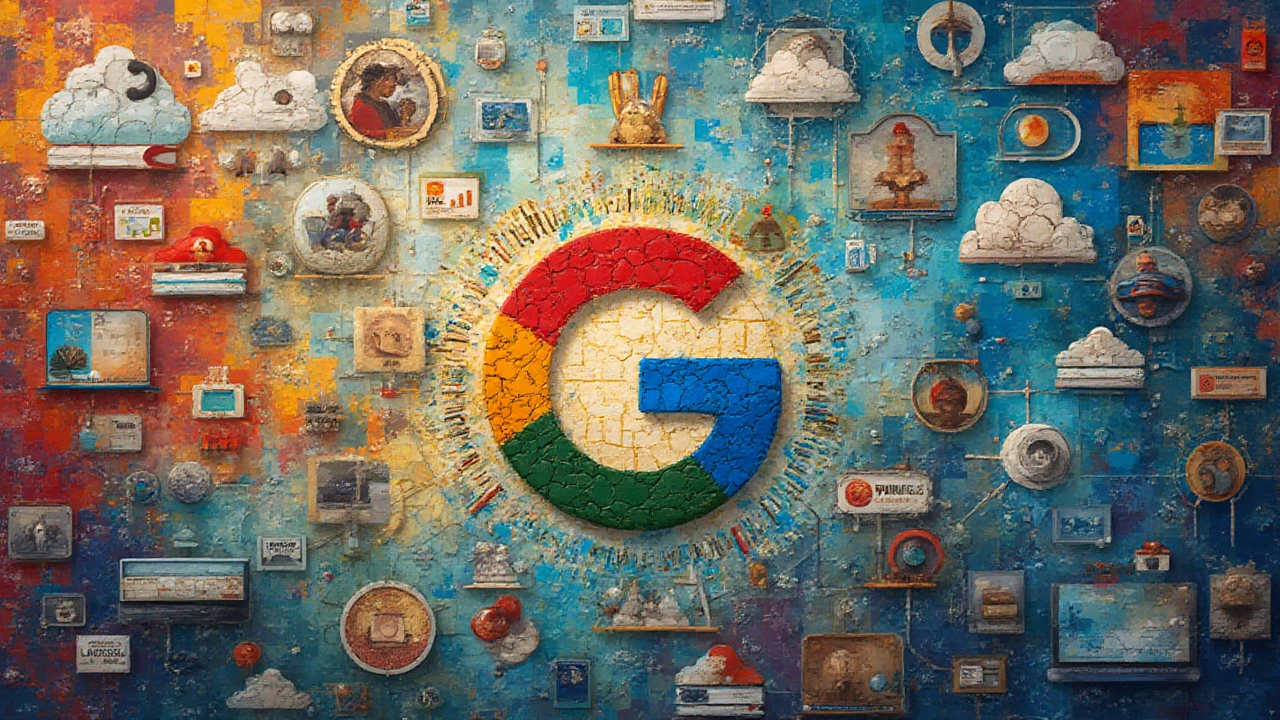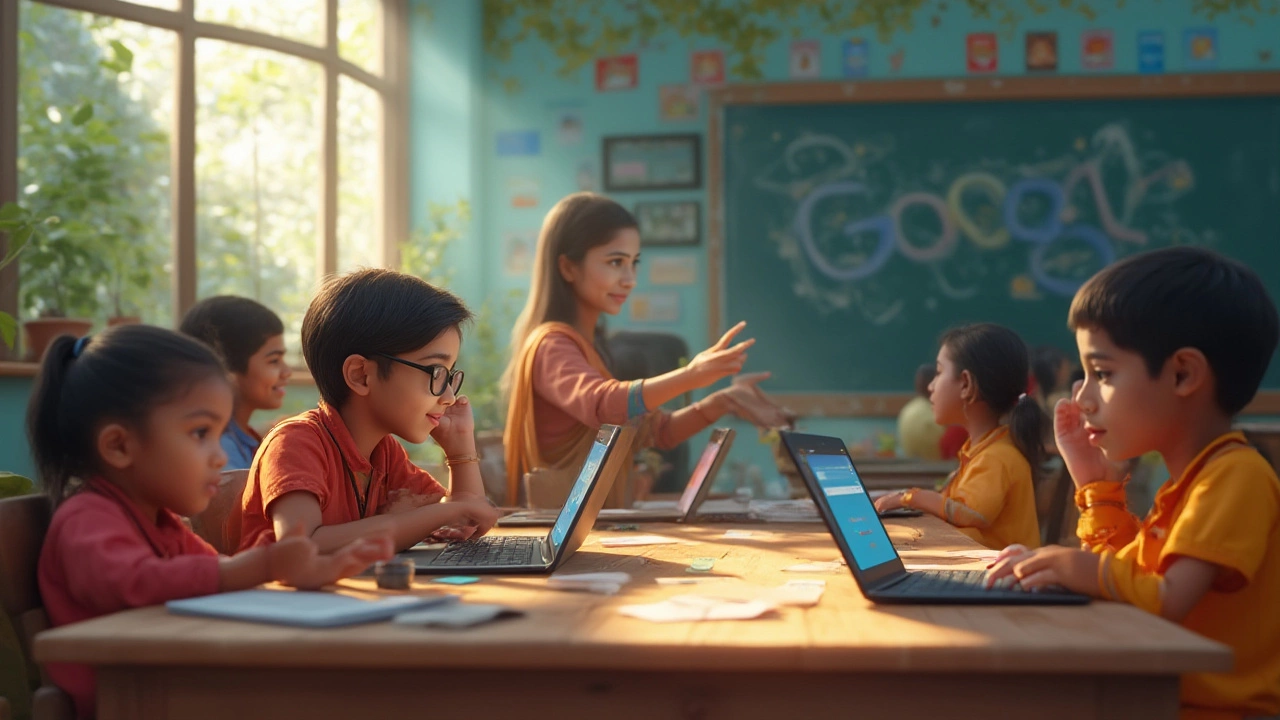Think about the last time you needed to find out something — anything. The odds are, you typed it into Google. Actually, there’s a pretty wild stat out there: every single second, about 100,000 Google searches are made. That’s over 8 billion searches a day, just for one service. But have you ever stopped to really ask, what is Google beyond a search bar? Is it just a search engine, or is it something bigger, maybe even the digital backbone of modern life?
What is a Digital Platform and Does Google Fit?
Let’s strip away the buzzwords. A digital platform is a place or service online where people or businesses can connect, interact, share information, or do business. It’s like a virtual town square — except instead of a few shop owners and the town gossip, you’ve got millions (or billions) of people bustling around.
Now, Google’s search engine is just the tip of the iceberg. There’s also Gmail, Google Drive, YouTube, Google Maps, Google Classroom — really, an endless menu of tools. Each one lets people find info, share stuff, learn, send emails, get directions, or watch videos. They’re all platforms in their own right, but tie together to make Google the digital platform equivalent of a sprawling city.
Here’s something interesting: Google doesn’t just offer spaces for you to do things — it brings people together. Take YouTube. Creators upload millions of hours of footage daily, viewers leave billions of comments, and influencers run their entire businesses from just one app. Or look at Google Play, buzzing with developers tossing up apps that billions of users download monthly. Google’s job isn’t just giving you answers; it’s building the spaces where all sorts of online activity can happen.
Even the boss at Google sort of shrugs at the old labels. A few years back, Sundar Pichai described Google not just as a search tool but as “an AI-first company” at heart— meaning, it’s a constantly evolving platform. The company’s own mission statement? “To organize the world’s information and make it universally accessible and useful.” Not just searching (notice the word?), but organizing the world — now that’s platform talk.
So if you’re wondering if Google is a digital platform, the answer is a big, bold yes. Actually, it might just be the world’s biggest one.
How Google Powers Online Learning and Collaboration
Google has elbowed its way into just about every classroom and workplace on the planet. There’s even a running joke that “Google Classroom” is a required subject at schools now. But there are some real reasons behind that. Google doesn’t just provide a search engine; it hands you an entire toolbox for learning and working with others, from the first day of school to starting your own business.
Think about Google Docs. You can open a new document, invite all your friends or classmates, and everyone types together — from opposite sides of the world. Changes show up instantly. No more emailing attachments back and forth. Google Sheets, Slides, Forms, and Drive do the same thing, but for data, presentations, surveys, and storage. Even busy teachers can whip up an online quiz or set group assignments that students finish from home.
Here’s why this matters: Studies from education researchers, like the University of California’s 2023 study, have found that students using collaborative platforms like Google Workspace score 17% higher on group assignments. The research didn’t just look at grades, either; it tracked how people worked together and solved problems. The team found less friction and fewer misunderstandings when digital tools did the heavy lifting.
It’s not just students and teachers, though. Google Meet and Workspace became the glue holding remote teams together during the pandemic. Suddenly, half the planet was video calling in their pajamas, but business kept rolling. Work didn’t stop; it just moved online, through Google’s platform.
Plus, Google makes things free — and accessible. You don’t need a fancy computer. A smartphone is enough. Even in places where resources are tight, Google gives access to digital classrooms and meetings. A 2022 UNESCO report found that countries using Google Classroom boosted remote student access by up to 40% compared to places not using it. That’s a huge deal in the developing world.

Google’s Influence: More than Just Search
If you thought Google was just a page of blue links, get ready for a reality check. Google quietly shapes what we find, how we learn, which businesses grow, and what trends take off — all behind the scenes.
The company’s dominance is almost startling. Google handles about 92% of global search traffic. Its Chrome browser is the global default. Billions rely on Gmail every day. Then add YouTube (the second-biggest search engine after, yes, Google itself). When Google tweaks its search algorithm, whole industries shift. Just ask any online business, publisher, or would-be influencer.
Take advertising: Google Ads reached over $224 billion in revenue last year, which is nearly 80% of parent company Alphabet’s total income. Those ads steer what you see, buy, and sometimes even think about next. It’s like the world’s busiest digital market square, with the power to spotlight anything — or bury it under the next page of results.
But Google’s power brings criticism. Some argue it’s too dominant, crowding out competitors and controlling the flow of information. Antitrust investigations in the US and EU are ongoing, looking at whether Google’s dominance tips the internet marketplace unfairly. According to a 2024 Forbes article, “Google’s influence is felt at almost every point in the digital value chain, from discovery to delivery.”
And then there’s privacy. The amount of data Google holds is, frankly, staggering. Every search, video watched, place visited with Maps, file sent from Gmail — it all paints a detailed picture of users’ lives. Google claims this helps personalize experiences, like suggesting resources or improving results. But users, governments, and privacy advocates keep a watchful eye, since with great data comes big responsibility (and sometimes, real risks).
| Year | Google Services (monthly users) | Search Market Share (%) | Revenue from Ads (USD billions) |
|---|---|---|---|
| 2020 | 3.8 billion | 87.35 | 147 |
| 2022 | 4.3 billion | 91.88 | 196 |
| 2024 | 4.75 billion | 92.42 | 224 |
So is Google just an online encyclopedia? Far from it. It’s the engine behind half of what we do online and pulls a lot of digital strings.
The Ecosystem: Platforms within a Platform
Here’s where things get meta. Each major Google service is a platform in its own right. Take Google Maps — it’s not just about getting from A to B. It’s how millions discover new cafes, book cabs, read reviews, or even decide where to move based on neighborhood insights. Maps is a lifeline for local businesses, realtors, delivery drivers, and travelers.
YouTube zooms out even further. Not only does it host billions of videos, but it also runs a creator economy. People find jobs, build audiences, and create culture right there. Some teachers — like my friend Chloe, who started making chemistry explainer videos in her spare room — gathered millions of subscribers, changing their careers entirely. There’s a community for everything from chess to Zoomba to advanced calculus, each thriving through Google’s engine.
Developers use Google Cloud to deploy apps and store data. Businesses advertise through Google Ads. Even the Google Play Store is a huge digital marketplace, powering mobile devices and connecting app creators with billions of users — effortless app updates, instant feedback, and the occasional viral smash-hit game (looking at you, “Among Us”).
You can even see this platform nesting with integrations. Google services talk to each other — for example, attaching video calls in Calendar, sharing Drive files in Gmail, or popping Maps locations directly into an invite. It’s all seamless, even a little eerie (Nathan sometimes jokes our calendar knows more about our household than we do). It’s no wonder that from startups to grandparents’ book clubs, Google has tools for everything.
But what’s it mean for regular users? It can feel empowering, like everything you need is right there for free — but also overwhelming. Every platform within Google brings benefits and tradeoffs, and your data powers it all.

Tips for Getting the Most Out of Google as a Digital Platform
With all these features, you might wonder: How do I actually harness Google for real results? Here are my best-tested tips — some learned the hard way, others straight from Google’s own help forums:
- Become a search whiz: Master advanced search commands like quotes for exact phrases, “site:” to search within a specific domain, or the minus sign to filter out unwanted results. These shortcuts save mountains of headache.
- Edit documents on the go: Grab the Google Docs and Sheets apps for your phone. You can actually finish (or start!) assignments from the back of a bus.
- Back up your data: Use Google Takeout to export a backup of your emails, files, and photos. Even Google suggests reviewing your privacy dashboard each year.
- Set up shared Drives: For group projects at work or school, shared Drives (not just folders!) make it easier to share files and keep everyone on the same page, with different access levels.
- Enable 2-step verification: Your Google account powers half your digital life. Protect it with extra security (seriously, don’t skip this one).
- Explore Google’s hidden features: Try Google Scholar for research, or use Google Translate for instant help with new languages.
- Customize notifications: Too many alerts? Tweak the settings so your devices buzz only for what matters.
- Use Family Link: If you’ve got kids, Google’s Family Link app helps set screen time and content filters.
- Don’t overlook privacy settings: Dive into your account dashboard to control what info Google keeps. You have more say than you think — and regular checkups make a difference.
Google isn’t just a digital platform — it’s a whole world within the internet. It shapes the way we learn, work, play, and stay connected. The trick is learning to use it wisely, embracing the endless opportunities it offers, while remembering the value of privacy and a little screen-free downtime (Nathan and I still go on phone-free walks). The digital landscape moves fast, but for now, as digital platforms go, it’s hard not to see Google as the heavyweight champion.
“Google has changed the way the world searches for information, but it has also become a platform for learning, commerce, and communication. Its reach extends far beyond search.” — Satya Nadella, Microsoft CEO, quoted in The Wall Street Journal, 2024.
